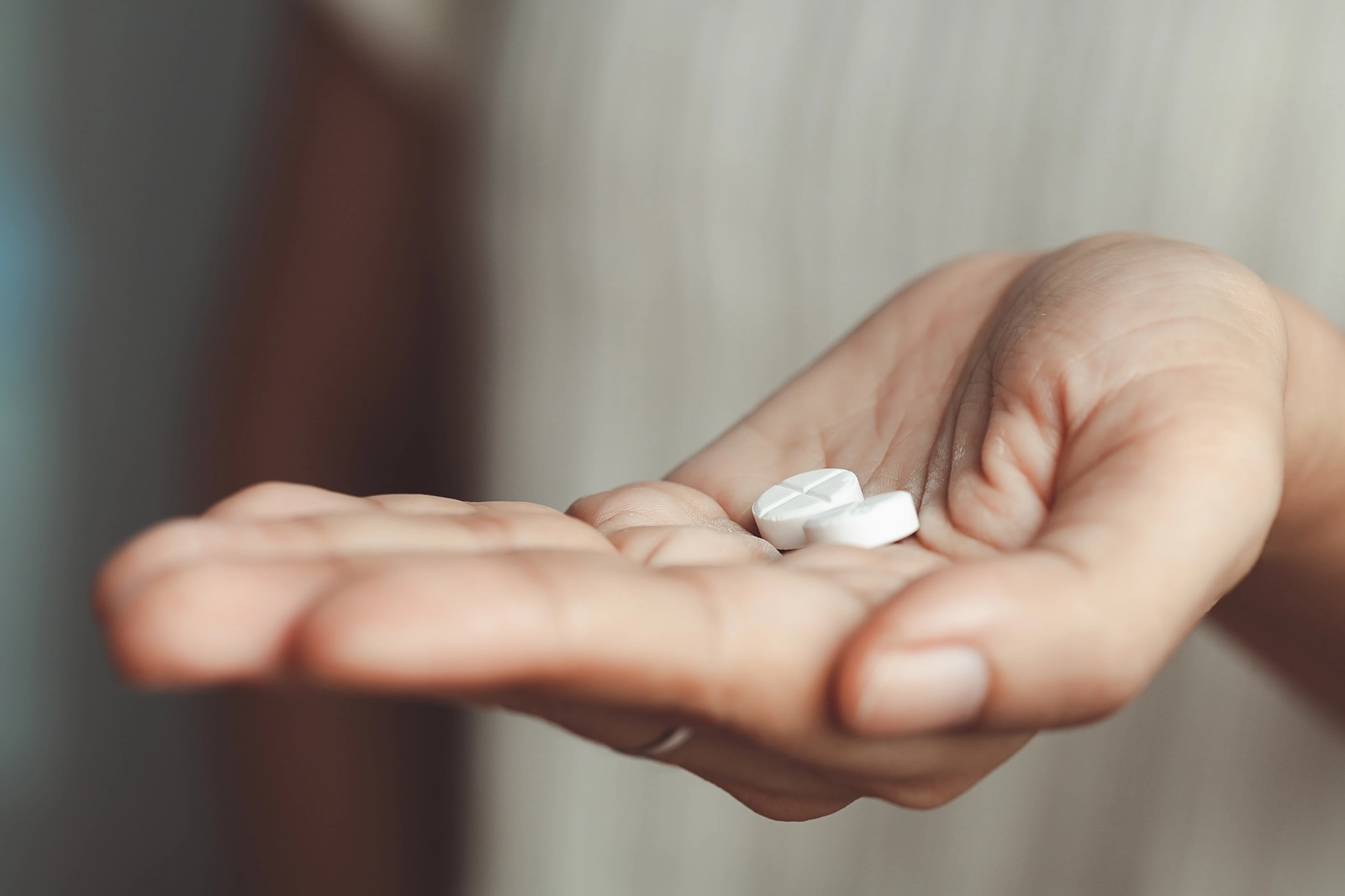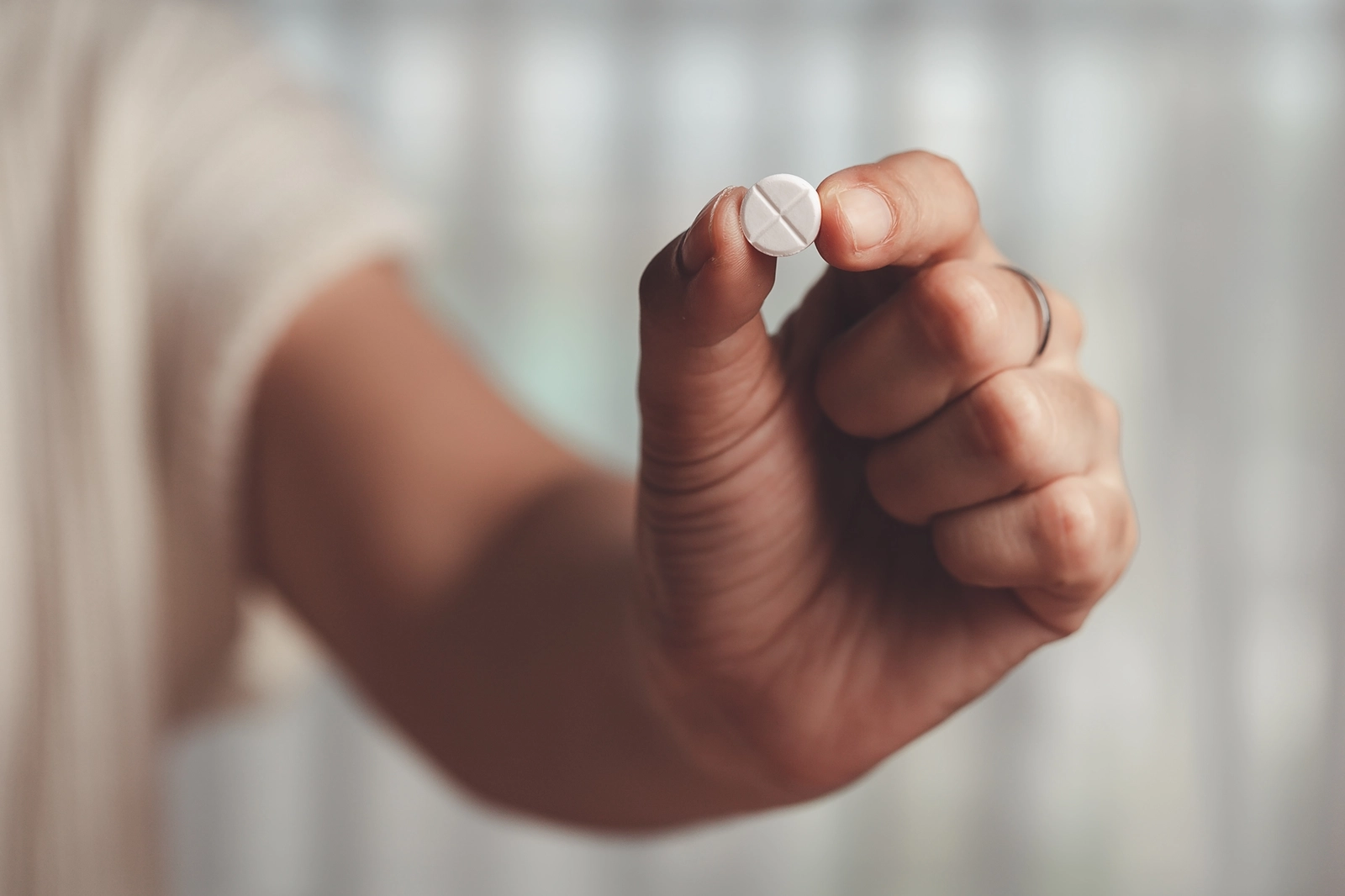Trazodone is an antidepressant medication that’s sold under the brand Desyrel. It’s used to treat depression and anxiety disorders, as well as other uses.
While trazodone is generally safe and well tolerated, there are risks to this medication – including possible overdose. Learn more about the risks of overdose and how to use this medication safely.
What Is Trazodone?
Trazodone is available under the brand Desyrel and in generic forms. It’s a commonly prescribed medication in the serotonin antagonist and reuptake inhibitor (SARI) medication class.[1] It’s often prescribed to treat anxiety and depression disorders like major depressive disorder by increasing the activity of serotonin, a neurotransmitter that affects mood, sleep, and other functions, to improve mood and promote relaxation.
In addition to an antidepressant, trazodone may be used off-label to treat insomnia and sleep problems, anxiety disorders, panic disorders, eating disorders, dementia-related anxiety, and diabetic nerve pain.
Trazodone is generally safe and has minimal side effects, but some can occur. The common side effects include fatigue, drowsiness, swelling, weight loss, and blurred vision.[2] The side effects typically improve as the drug is regulated in the system.
Some serious side effects can also occur, including a racing heart, fever or ill feeling, breathing problems, stomach cramps, nausea, vomiting, allergic reactions with hives, itchiness, and swelling of the face, lips, mouth, and throat.[3]
Can You Overdose on Trazodone?
Trazodone overdoses are rare, but they can happen. There’s an increased risk when mixing trazodone with other prescription drugs or taking it in high doses. With the drowsiness that occurs, combining trazodone and alcohol or other central nervous system depressants like benzodiazepines or opioids can increase the risk of overdose by slowing the body’s functions to life-threatening levels.
The symptoms of a trazodone overdose may include:[4]
- Irregular heartbeat
- Extremely low blood pressure
- Chest pain
- Difficulty breathing
- Drowsiness
- Headache
- Insomnia
- Dizziness
- Seizures
- Poor coordination
- Coma
Though rare, trazodone overdoses can lead to serotonin syndrome, a life-threatening condition in which serotonin builds up in the body. This is an emergency that involves symptoms like seizures, fever, diarrhea, vomiting, and muscle stiffness that require medical attention.
A trazodone overdose can be reversed without any lasting damage, but two documented complications can occur. An overdose can cause delayed cardiac conduction abnormalities, including QT prolongation, which affect the electrical system that regulates the heartbeat and heart rhythm.[5] Another possible complication is a severe drop in blood pressure that can happen with trazodone overdoses.[6]
It’s rare for a fatal overdose to occur with trazodone. However, there have been deaths associated with trazodone overdoses that involve other drugs, particularly central nervous system depressants like opioids, alcohol, or benzodiazepines. It’s important to seek medical attention if you think someone is overdosing on trazodone.
Trazodone Dosage and Overdose

Trazodone is prescribed at different doses to treat different conditions. Adults are usually prescribed 50 mg to 150 mg daily with a maximum dose that doesn’t exceed 400 mg.[7] Sometimes, doctors prescribe a higher dose than the maximum to treat specific conditions.
400 mg is the maximum recommended dosage, but overdoses can occur at lower doses. Several factors affect trazodone metabolism, including age, weight, gender, and health conditions. Taking trazodone with other substances, such as alcohol, significantly increases the risk of overdose – at any dose.
Safety Precautions with Trazodone
Trazodone is generally a safe drug with mild side effects for most people. Typically, the side effects subside once the drug is regulated in the system. Most trazodone overdoses are attributed to misuse, abuse, or polysubstance use, which is when you use multiple substances at once.
The best way to avoid serious side effects and overdose is to take trazodone exactly as prescribed. Don’t take more trazodone than you’re prescribed or more often than prescribed. You should never combine trazodone with other drugs without discussing it with your doctor.
Trazodone has some drug interactions that can cause adverse reactions, including interactions with pain medications and migraine medications. Discuss any medications you’re taking with your doctor, including over-the-counter medications, vitamins, supplements, and herbal remedies. It’s also dangerous to combine trazodone and alcohol consumption.
Don’t take trazodone any other way than intended. Don’t chew or crush trazodone tablets. Scored tablets can be split along the score line to reduce the dosage. If you experience digestive upset, take trazodone with food.
Some of trazodone’s side effects can be dangerous during certain activities. Don’t drive a vehicle or engage in activities requiring coordination or alertness until you know how trazodone affects you.
Some people experience excessive tiredness on trazodone, which is why it’s used off-label for sleep problems. If you experience extreme drowsiness, you may need to reduce your dose. Don’t stop taking trazodone or reduce your dose without speaking to your doctor.
Always keep trazodone out of reach of children and pets. Don’t share your medication with anyone. They need to speak to a doctor about trazodone for depression, anxiety, or other conditions.
Is Trazodone Addictive?
Based on research, trazodone is not addictive in the traditional sense.[8] However, long-term use of trazodone can cause physical dependence. While this isn’t an addiction, it does mean that your body may experience withdrawal if you stop taking trazodone suddenly.
Trazodone can be misused or abused. It doesn’t provide euphoria, but people may misuse trazodone to relax or sleep due to its sedative effects.
Treatment for Trazodone Misuse and Polydrug Use
Trazodone isn’t considered addictive, but it may be misused or abused with other drugs to get different effects. Mixing trazodone and other substances or taking high doses of trazodone can increase the risk of dangerous consequences and overdose.
If you believe you have a problem with trazodone misuse or polydrug use involving trazodone and other drugs, it’s important to seek help. The longer you misuse trazodone, especially with other drugs, the more likely you are to experience overdose or other serious effects.
Trazodone abuse can cause physical dependence, so you may benefit from medical detox to avoid any intense withdrawal symptoms. A medical team can monitor your health to keep you safe and reduce the severity of withdrawal symptoms.
Detox is the foundation for recovery from substance abuse, but it’s not enough on its own. Comprehensive addiction treatment that addresses the underlying causes of addiction on a psychological level is the best way to learn healthier habits and commit to recovery. While the treatment plans are individualized, you may undergo individual or group counseling, support groups, behavioral therapies, and holistic therapies to treat both the addiction and any co-occurring mental illness like depression and anxiety.
Preventing Trazodone Overdose
Trazodone is a commonly prescribed drug for depression and other conditions. It’s generally safe and well tolerated, but it does have some side effects and possible complications, including overdose. Make sure always to take trazodone as prescribed and avoid mixing it with other drugs, especially another central nervous system depressant.


